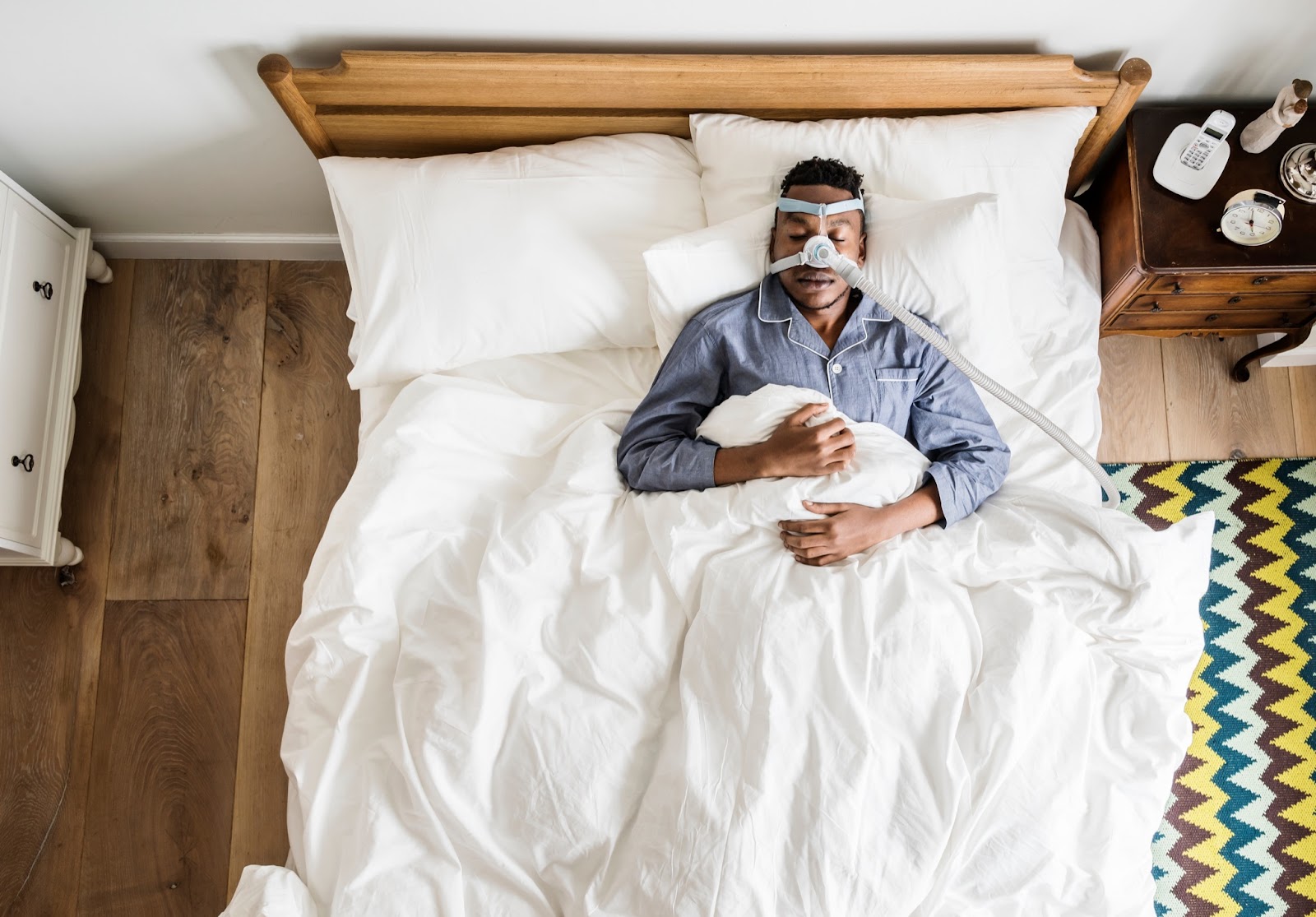Does Sleep Apnea Cause Weight Gain? Here’s What You Need to Know

Sleep is a vital part of a healthy life. When you lack sleep due to irregular sleep patterns, illness or health conditions, it can affect the way your mind and body function.
Nearly 70 million Americans suffer from some form of chronic sleep problem. This alone leads to chronic disease, injury, mental health problems and overall poorer quality of life.
Of those 70 million people, about 22 million are diagnosed with sleep apnea. What’s even more alarming is that about 80% of those living with moderate to severe chronic obstructive sleep apnea cases are undiagnosed.
Although sleep apnea is directly caused by a narrowed airway, the main reason this occurs in most people is obesity. Conversely, sleep apnea patients often see a spike in the number on the scale, as sleep apnea can cause weight gain if left untreated.
Let’s dive deeper into understanding the tie between sleep apnea and weight gain.
What Is Sleep Apnea?
By definition, sleep apnea is classified as a serious sleep disorder that causes breathing to start and stop repeatedly and abnormally.
There are three main types of sleep apnea, and they are:
- Obstructive sleep apnea — the most common type of the condition, occurs when the throat muscles relax, narrowing or closing your airway as you breathe in, resulting in irregular breathing and loss of breath.
- Central sleep apnea — caused by a misfire of signals to the brain that controls how and when muscles relax.
- Complex sleep apnea syndrome — occurs when a patient is diagnosed with both obstructive and central sleep apnea.
Symptoms
Sleep apnea symptoms for both obstructive and central are almost identical, sometimes making it hard for a doctor to determine which type you are experiencing.
The most common sleep apnea symptoms include:
- Episodes where you stop breathing in your sleep — most often detected by another person
- Loud snoring
- Gasping for air in your sleep
- A dry mouth upon waking
- Headaches, especially in the morning
- Insomnia
- Fatigue
- Irritability
- Difficulty concentrating
Risk Factors
Sleep apnea can affect anyone at any age. Still, several factors put you at increased risk of developing it.
Some of the most common risk factors include:
- Excessive weight and obesity
- Larger neck circumference
- A narrow throat or airway
- Age — those who are older are at greater risk
- Gender — Males are two to three times more likely to develop it than females
- Family history
- Alcohol or tobacco use
- Medical conditions such as type 2 diabetes, heart disease, high blood pressure and chronic lung diseases such as asthma.
- A history of stroke
How Does Sleep Apnea Cause Weight Gain?
There are various reasons you may gain weight after a sleep apnea diagnosis.
One of the most significant links between the two is that sleep apnea negatively affects overall energy levels. Continual sleep deprivation leads to ongoing fatigue, which causes you to avoid expending excessive amounts of energy, often leading you to avoid daily movement and exercise.
Secondly, hormone imbalances are often seen in those living with sleep apnea. Fluctuations in hormones can lead your body to misread hunger signals, increasing your appetite and making you feel more hungry than you usually would.
The body manages hunger through the hormones ghrelin and leptin. Ghrelin is responsible for the hunger sensation, telling the body when it’s time to consume food. An increase in this hormone due to an imbalance leads to eating more often, leading to weight gain.
On the other hand, leptin signals when the body is full. A drop in this hormone can cause a person to eat more than they normally would because their body’s “full” signal is essentially turned off.
Sleep Apnea Treatment Options
If you’ve recently been diagnosed with sleep apnea and are seeing an increase in your weight, or you’re living with obesity that has caused a sleep apnea diagnosis, bariatric surgery may be the best option for you.
With the combined effects of significantly decreasing your body weight and alleviating your sleep apnea symptoms, weight loss surgery can positively impact your life. In fact, losing just 10% of your body weight has been shown to decrease your risk of developing lifelong sleep apnea by up to 25%. Schedule your consultation with our compassionate team of bariatric experts today.

Are You a Candidate for Weight Loss Surgery?
Take our 60 second assessment and find out if you are a candidate for weight loss surgery


